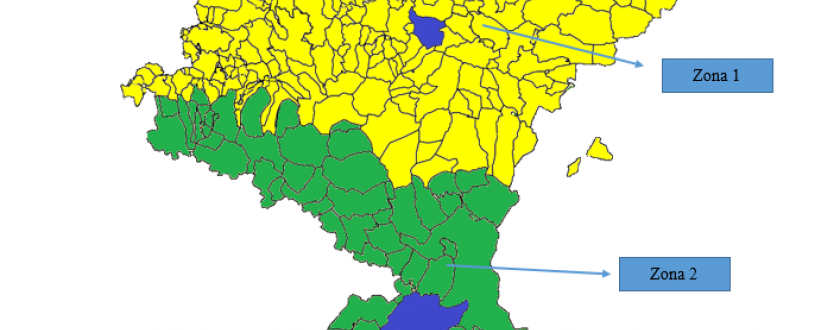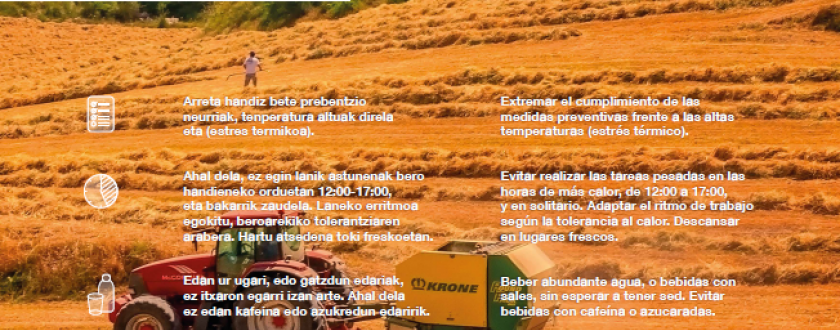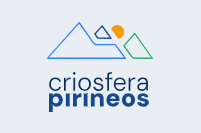Navarre Excess temperature Health Effect Prevention Plan
Description of the case study
In collaboration with the Ministry of Health, Consumption, and Social Welfare, Navarre put the Monitoring and Control Plan into place after the summer 2004 heatwaves. Since then, it has been carried out every year from June to September involving numerous institutions from the healthcare network as well as social services, municipal councils, and other entities, which are coordinated through the Navarre Institute of Labour and Public Health (ISPLN).
The Government of Navarre is currently developing the climate change adaptation project, Life-NAdapta (2017-2025). One of the project’s areas of action is advancing with preventing the effects of climate change on human health, including those derived from exposure to high temperatures. Within the framework of this project, they are introducing improvements and innovations to the plan that has been implemented so far.
In collaboration with the AEMET, Navarre has been divided into 3 isoclimatic zones to monitor and issue alerts according to temperature limits specific to each: Atlantic zone, central zone, and southern zone.
Once the zones are determined, databases were created with a 10-year historical series of maximum and minimum temperatures for three reference seasons (one per area), and mortality data from each of the areas was collected to calculate the temperature thresholds that “trigger” mortality. The threshold temperatures for the three determined zones were calculated in collaboration of the Carlos III Health Institute.
For practical purposes, only two zones were worked with, as the threshold temperatures obtained in the Atlantic and central zone were quite similar.
General Aim: reducing the morbidity and mortality caused by an increase in air temperatures in Navarre.
Specific objectives:
» Informing social services, emergency services, and healthcare professionals about the risk of high temperatures and the need for prevention measures, as well as their involvement.
» Informing the general public about the risks associated with exposure to high temperatures, and prevention measures available.
» Monitoring and sounding the alarm on situations of extreme heat during the summer period through an information system based on meteorological forecasts from the National Meteorology Institute.
» Monitoring morbidity and mortality associated with extreme heat.
» Coordinating and promoting preventative actions corresponding to each level of risk.
At the end of each summer, an evaluation of the Plan is carried out with the results obtained:
» Accounting on the number of alerts issued.
» Monitoring morbidity and monitoring emergencies:
- The number of pathologies associated with heat registered are counted, along with their characteristics (sex, age, prior pathologies, hospital care, risk activity).
- The number of emergencies are counted.
» Monitoring daily mortality: through the Monitoring System of daily mortality for all causes (MoMo) from the ISCIII National Epidemiology Centre, cases of death in Navarre have been downloaded, and recorded incidents were monitored.
Based on the results obtained, preventative measures were implemented for the various accepted risk groups.
Case study developed, implemented, and partly funded as a climate change adaptation measure.
Navarre Institute of Public Health and Labour, civil protection, workplace risk prevention services, entrepreneurs, union representatives, day centres and elderly care home managers, city councils, the Navarre Federation of Towns and Municipalities, the Department of Social Rights, the Directorate General of Tourism, and Commerce, and the Navarre Friends of the Way of St. James Association, SOS Navarre, and the Navarre Sport and Youth Institute.
Additional Information
» Design: The Navarre Institute of Public Health and Labour, in coordination with the Ministry of Health, Consumption, and Social Welfare.
» Execution: All organisations involved.
» Evaluation of the measure: Different services and sections of the Navarre Institute of Public Health and Labour (Observatory of Community Health, Promotion of Health, Workplace Health, Environmental Health).
Participatory tools employed:
- Initial meeting with all stakeholders involved before implementing the Plan to evaluate the previous year’s Plan and see possible changes that could be made.
- Crisis cabinet.
- Coordinating organisations involved.
Methodologies employed for decision making:
- Communicating alerts to the organisations involved
- Meetings with interested organisations
Success factors: the participation of so many organisations and entities in the Plan makes the Plan reach a larger public, particularly more vulnerable groups. With the work carried out for more than 15 years, the general public has been made aware of the risk that heat can pose to their health.
Limiting factors: the fact that there are so many organisations involved makes it difficult to be able to know what work the other stakeholders involved are doing or monitor the practices they carry out.
Not carried out.
This plan falls within the framework of the National High Temperature Preventative Action Plan and the Life NAdapta Project.
06/01/2004 (in progress)
Reference information
PYRENEAN CLIMATE CHANGE OBSERVATORY
Avenida Nuestra Señora de la Victoria, 8
22.700 - Jaca
Huesca - España
+34 974 36 31 00
info_opcc@ctp.org







